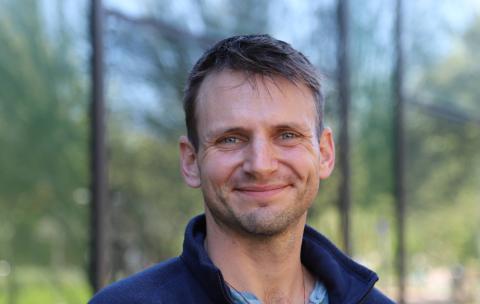event
[Postponed] CSE Faculty Candidate Seminar - Robert Webber
Primary tabs
This CSE faculty recruiting seminar has been postponed from February 13 due to unforeseen circumstances. We will announce the seminar's date and location at a later time.
Name: Robert Webber, CMX postdoctoral fellow at California Institute of Technology
Date: TBD
Location: TBD
Link: The recording of this in-person seminar will be uploaded to CSE's MediaSpace
Title: Randomized Matrix Decompositions for Faster Scientific Computing
Abstract: Traditional numerical methods based on expensive matrix factorizations struggle with the scale of modern scientific applications. For example, kernel-based algorithms take a data set of size N, form the kernel matrix of size N x N, and then perform an eigendecomposition or inversion at a cost of O(N^3) operations. For data sets of size N >= 10^5, kernel learning is too expensive, straining the limits of personal workstations and even dedicated computing clusters. Randomized iterative methods have emerged as a faster alternative to the classical approaches. These methods combine randomized exploration with information about which matrix structures are important, leading to significant speed gains.
In this talk, I will review recent developments concerning two randomized algorithms. The first is "randomized block Krylov iteration", which uses an array of random Gaussian test vectors to probe a large data matrix in order to provide a randomized principal component analysis. Remarkably, this approach works well even when the matrix of interest is not low-rank. The second algorithm is "randomly pivoted Cholesky decomposition", which iteratively samples columns from a positive semidefinite matrix using a novelty metric and reconstructs the matrix from the randomly sampled columns. Ultimately, both algorithms furnish a randomized approximation of an N x N matrix with a reduced rank k << N, which enables fast inversion or singular value decomposition at a cost of O(N k^2) operations. The speed-up factor from N^3 to N k^2 operations can be 3 million. The newest algorithms achieve this speed-up factor while guaranteeing performance across a broad range of input matrices.
Bio: Robert Webber is currently a CMX postdoctoral fellow in Caltech's Department of Computing + Mathematical Sciences, hosted by Joel Tropp. Before that, Robert was a Ph.D. student in mathematics at the Courant Institute of Mathematical Sciences, advised by Jonathan Weare. Robert studies randomized numerical methods and their applications to data science and scientific computation.
Status
- Workflow status: Published
- Created by: Bryant Wine
- Created: 02/06/2024
- Modified By: Bryant Wine
- Modified: 02/12/2024
Categories
User Data
Target Audience

